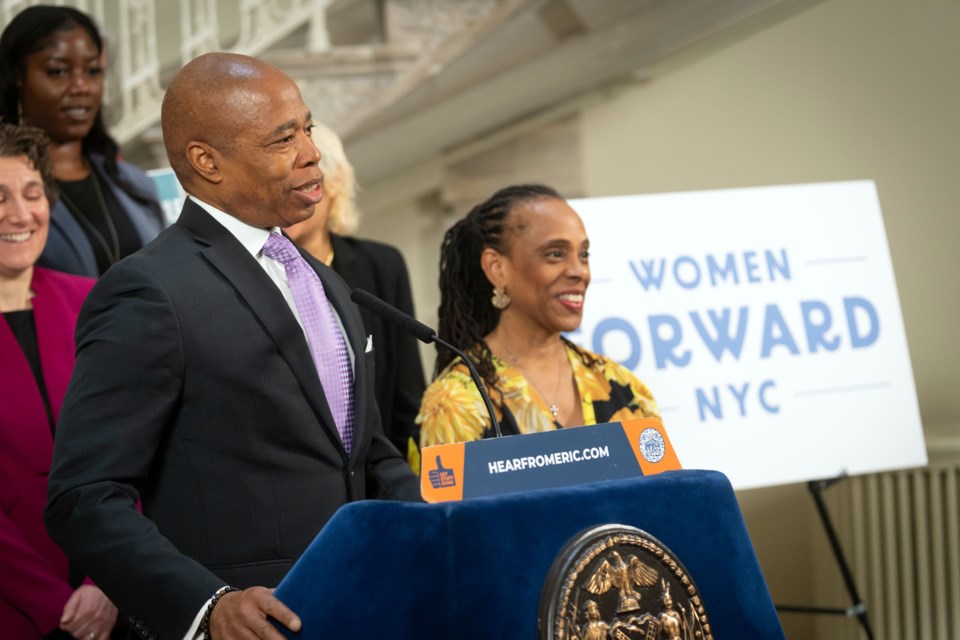The city on Monday launched Project Home, a new pilot program that will provide intensive, specialized housing search assistance to domestic violence survivors with children living in city shelters.
Beginning with 100 families, Project Home will help domestic violence survivors find safe, permanent homes and reduce the amount of time spent in shelter, according to a news release.
Launched in partnership with New Destiny Housing — a nonprofit that provides housing and services to domestic violence survivors and their families — the pilot is funded with a $300,000 grant from the NYC Fund to End Youth & Family Homelessness.
New York City Mayor Eric Adams also announced expansions to eligibility for supportive and affordable housing units for survivors of domestic violence, minimizing the amount of time survivors spend in shelter and significantly increasing the permanent housing options available to them.
These eligibility expansions undo unnecessary bureaucratic rules that have historically made domestic violence survivors ineligible for New York City Department of Health and Mental Hygiene (DOHMH) supportive housing or New York City Housing Preservation and Development (HPD) affordable housing and expands the pool of homes available to this vulnerable population.
“Everyone deserves to be safe in their relationships and live a life free of domestic and gender-based violence,” said Adams. “But for too many New Yorkers, home is no longer safe and, too often, domestic violence survivors end up in shelters as they are forced to leave their homes. Today, we are giving survivors hope with Project Home, a pilot program to provide housing assistance to domestic violence survivors living in shelter."
One 100 families staying in New York City Department of Homeless Services (DHS) shelters will be randomly selected from the pool of eligible households, comprised of those in shelters as a result of domestic violence. The participating families will be directly connected to a specialized housing navigator — trained in the challenging dynamics of domestic violence as well as affordable housing — who will work closely with each participating family to quickly secure permanent housing.
They will identify appropriate apartments from trusted landlords, advocate on behalf of the family with landlords and brokers, and assist with applications, with the goal of minimizing the amount of time each family spends in shelter.
To ensure families remain stably housed for the long term, the pilot program will include an aftercare coordinator to provide light-touch services after families move out of shelter. Services will include financial coaching; connecting families to new doctors, schools, childcare, and other resources in their new neighborhood; and linking families to counseling to help survivors recover from the traumas of homelessness and domestic abuse.
The aftercare coordinator will also assist families in obtaining or maintaining government benefits. Aftercare services will be available to families for up to one year after they move into their new home and are supported by a grant from The Leona M. and Harry B. Helmsley Charitable Trust.
The initial phase of Project Home will last approximately one year, during which families will receive dedicated assistance from New Destiny Housing Navigators during the housing search and aftercare support once they move into their new homes.
Following the placement of all families, DSS will conduct an evaluation of the results of the pilot, including its ability to shorten shelter stays, place families in new homes, and help those families stay stably housed. To ensure an accurate and rigorous analysis of the pilot, eligible families will be randomly assigned to Project Home and the results will be compared against the outcomes of other similarly situated families receiving standard housing placement assistance during the same time frame.




